Calais and the UK's lack of ID cards
- Published
The deputy mayor of Calais, Philippe Mignonet wants the UK to introduce identity cards as part of efforts to deter migrants gathering at the French port and attempting to cross the channel.
But when the last Labour government tried to bring them in the plan faced robust opposition, and the reintroduction of ID cards is not currently being considered by this government.
ID Cards history
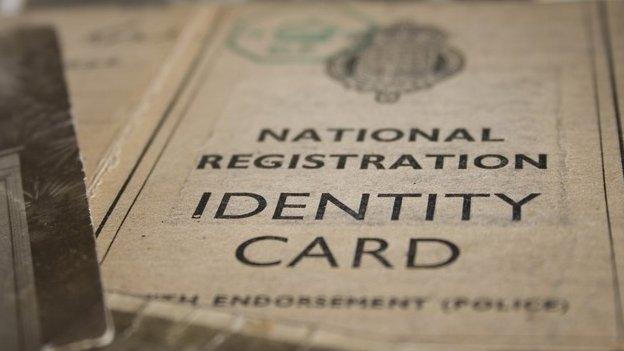
Used by everyone in World War Two
Everyone, even children, had to carry an ID card during World War Two. Introduced in 1939 the idea was to enable the government to keep track of a transient population, displaced by bombs or evacuated from their homes. The wartime ID card system remained in place after 1945, eventually going out of use in the early 1950s.
ID Card revival
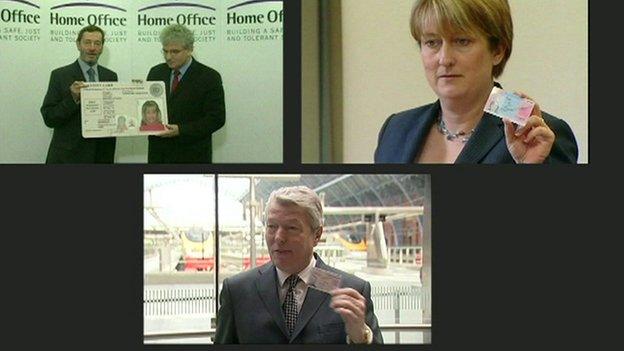
Labour tried to introduce ID cards
Labour revived the idea of a national identity card scheme at the start of the new century.
David Blunkett, the then Home Secretary, outlined the plans in 2002. At the time the project had an estimated cost of up to £3bn.
He said the cards would ensure people did not work if they were not entitled to and did not "draw on services which are free in this country, unless they are entitled to".
In March 2006 and after several defeats in the House of Lords, the Identity Cards Act became law and in November 2008 the roll-out of compulsory ID cards for foreign nationals began .
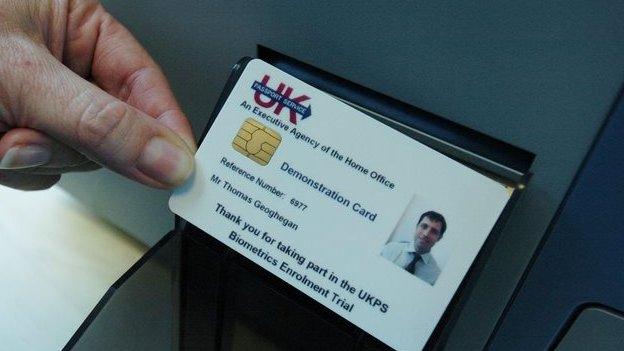
Tried and tested, but later abandoned
The scheme remained controversial and in 2009 a new Home Secretary, Alan Johnson said the cards would not be compulsory for UK citizens, however pilot schemes continued and at the end of 2009 people in Greater Manchester became the first in the UK to be able to buy a biometric ID card - at a cost of £30.
By the time of the 2010 General Election around 15,000 were thought to be in circulation, but Labour lost the election and the new coalition government scrapped the project. The cards were no longer valid and the national identity register, which held the personal details of everyone issued with an identity card, including photographs and fingerprint biometrics was destroyed in 2011.
For and Against
Various arguments have been put forward for and against the use of ID cards .
Those in favour say they provide clarity for employers, are the only way to properly deal with illegal immigration and tackle both identity and benefit fraud. It has also been suggested they could help in the fight against terrorism.
Those against ID cards point to the expense of bringing in any scheme, Labour's project is said to have cost £5bn. Opponents also highlight the civil liberties concerns and what they believe is unnecessary data collection and intrusion by the state.
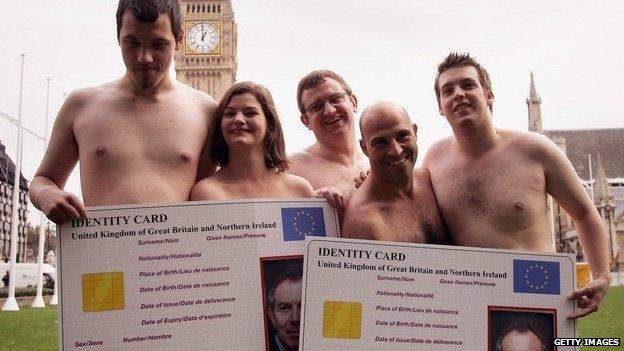
Naked opposition
What now?
In response to the recent scenes of thousands of migrants trying to get to the UK after crossing from North Africa and travelling through Europe, the deputy mayor of Calais, Philippe Mignonet has said the UK should introduce ID cards (and employment controls).
But there's still strong opposition to the idea here.
The anti-ID cards pressure group NO2ID remains in existence and is withering about the deputy mayor's suggestion. NO2ID's General Secretary Guy Herbert disagrees with the deputy mayor: "France has had ID cards for decades, but they have not stopped migrants coming to his town.
"In fact though coalition rhetoric was against the Blair government's centralised scheme, the UK makes lots of demands on people to produce ID in various forms in everyday life. This is getting steadily worse, but does not seem to have made much difference to people with strong motivations to come here."
And the deputy mayor of Calais is likely to be disappointed by the response from Britain's politicians too.
The Shadow Immigration Minister David Hanson was in the Home Office when Labour introduced its scheme. When asked what he thought now about identity cards, he said: " I felt they were a way in which we can at least track and identify individuals but that debate has moved on... we're not going to introduce them in the near future given the capital and financial cost of doing that - what we need to do is to ensure that we have proper enforcement."
The Home Office also rejected the idea, a spokesperson said: "The government has no plans to introduce ID cards in the UK."
Read more: Would Calais migrants really be better off in the UK?
- Published5 July 2015
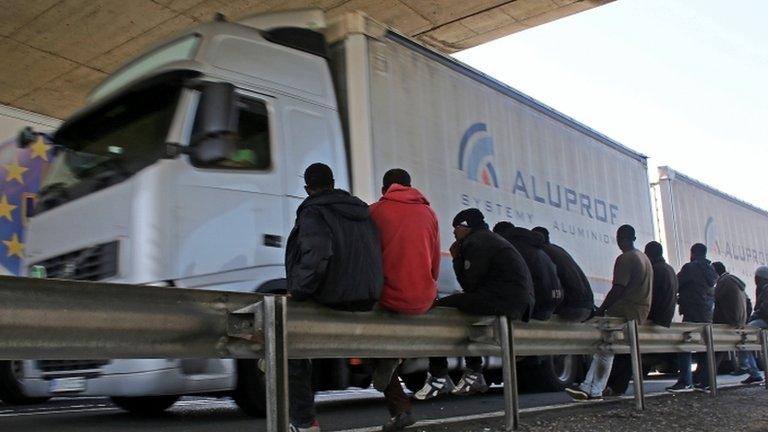
- Published3 August 2015
